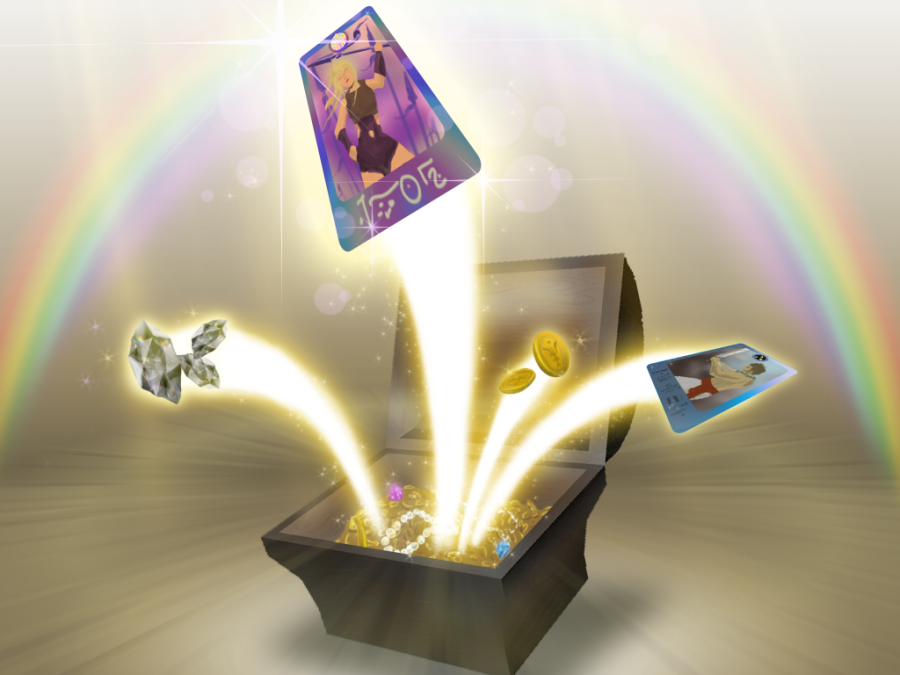The video gaming industry has always received a backlash about the recently introduced loot box mechanic, which most people argue that it is very similar to online gambling.
The idea is simple. Most game publishing companies offer the game free-to-play, but with certain, and often hidden in-game costs and purchase options. Some games even allow you to use money to increase your character’s power by buying in-game items through the shop, and such games are referred to as pay-to-win.
But the loot box mechanic is the most evident feature in video games at the moment, and we can all agree that it is a form of gambling, even though we are not playing casino games.
Loot boxes are usually given free depending on achievement, but you can also buy loot boxes using the game’s virtual currency, which is bought for real money. Therefore, loot boxes require you to deposit real money, but the prize is not unveiled until you open the box. You are hoping for a legendary item, but there is no guarantee that you’ll win one. Sounds like online gambling to me.
On the other hand, we have social casinos, which are a relatively new fork of the casino industry, where people are not required to deposit money in order to enjoy casino games. If you are interested in playing social casino games for free you can try out huuugecasino.com.
New players are given a certain amount of virtual currency, which is usually handed out by completing challenges, but you can always increase your bankroll by purchasing additional in-game currency with real money.
So, do we know the red lines of what can be considered gambling and what is not in the gaming world? Let’s find out.
The Rise of Loot Boxes
Loot boxes are a special in-game feature that dictates the entire gaming industry at the moment. We are talking about an industry that generated close to $19 billion in sales in 2022, and it is projected that will reach $32.7 billion by 2032.
So, obviously, there is a lot of money in circulation when it comes to loot boxes, and game developers will do everything in their power to protect their interests. So, if you ask them, loot boxes are not considered gambling.
At first loot boxes were designed to reward players randomly, which enhances engagement and retention. However, monetization has transformed the loot box mechanic in games into a gambling-like feature.
Players now purchase these boxes, without knowing what’s inside, which is similar to buying a raffle ticket.
What’s Inside a Loot Box?

Most loot boxes have a ranking system of special in-game items (cosmetics) ranging from common to ultra rare or legendary. Some games offer different loot boxes, where the drop chance of a legendary item varies. Obviously, the loot boxes with the biggest chance of dropping a legendary item are the most expensive.
Inside the loot box, players can find anything from cosmetic items, to powerful in-game items that can enhance your character’s performance. This unpredictability taps into the same psychological triggers as traditional gambling, as you are faced with the thrill of uncertainty and the potential for a big win.
Psychological Mechanics at Play
Gambler’s Fallacy
One key concept linking gaming to gambling is the Gambler’s Fallacy. This cognitive bias leads players to believe that past outcomes influence future events. For example, after a series of losses, a player might think a win is imminent, prompting continued spending on loot boxes .
Variable Ratio Reinforcement
This is the core principle of slot machines and many gambling games. It’s the idea that rewards are given on a variable schedule, making the activity highly addictive.
In gaming, this is seen in loot boxes where the reward (a rare item) appears randomly, keeping players hooked with the hope that the next box might be the big one.
Illusion of Control
Players often believe they can influence the outcome of games through skill or strategy, even when the outcome is purely chance-based. This illusion is strong in both gaming and gambling, where players feel their actions can sway the results.
The Resemblance Between Loot Boxes and Social Casinos
Loot boxes in traditional video games and social casinos share striking similarities but also notable differences. In traditional video games, loot boxes typically offer players a chance to win in-game items, such as cosmetics, weapons, or character enhancements, that can affect gameplay or purely aesthetic features.
These are purchased using in-game currency or real money, and their random nature makes them akin to gambling, with players often repeatedly buying in hopes of obtaining rare items.
On the other hand, social casinos are designed to mimic real gambling experiences without real money payouts. They offer virtual slot machines, poker, and other casino games where players use virtual currency to play. The attractiveness here is not to win physical prizes but to progress in the game and achieve higher scores or social status among peers. However, both loot boxes and social casinos leverage the same psychological principles of randomness and reward to keep players engaged and spending money.






 Your total news and information resource for all things Science, Technology, Engineering / Mathematics, Art, and Medicine / Health.
Your total news and information resource for all things Science, Technology, Engineering / Mathematics, Art, and Medicine / Health.
Leave a Comment